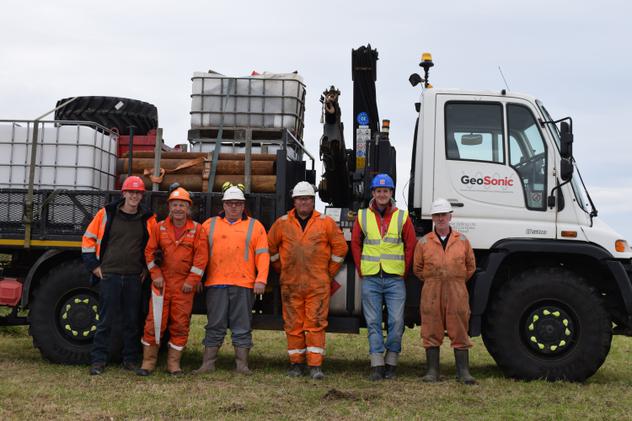Summary:
Here we explore how CO2 can be removed from the atmosphere using by-products from the steel industry.

Funder: UKRI Greenhouse Gas Removal Programme
Reference Number: NE/P019943/2
Grant: £300,000
Duration: 1 Aug 2017 – 24 Aug 2020
Project Partners: University of Hull, Tarmac, Durham County Council
Description
Decarbonising the steel industry is an important step in our pathway to avoiding dangerous climate change. This project explores the possibility of removing CO2 from the atmosphere by reacting it with slag, a by-product from the industry. Currently, around half a billion tonnes of slag are produced globally, which may be able to capture ~200 million tonnes of CO2.
Our work explores the internal chemistry of historic heaps to understand the long-term constraints on CO2 sequestration, and we also undertake field trials of CO2 injection into large controlled reactors.
Iron and steel slags are a glass/semi-crystalline material rich in silicate and oxide minerals, which dissolve 4-5 orders of magnitude more rapidly compared to their naturally occurring counterparts. These wastes are found as large deposits at current and former steelworks, and represent a considerable liability for producers. By accelerating the weathering of slag, it may be possible to reduce this environmental burden. It also offers a mechanism by which the CO2 intensive steel industry could begin to decarbonise, and ultimately become net negative, if combined with extensive emissions reduction at source.
Previous research has demonstrated unintentional atmospheric CO2 sequestration over multiple decades in the drainage waters emerging from slag heaps, and small scale engineered systems have been proposed to carbonate slag under elevated temperatures and pressures. What remains unclear is the feasibility and efficacy of engineering approaches to accelerate atmospheric CO2 sequestration to occur in a policy-relevant time period at a relevant scale. This will require the development and operation of reactors on an unprecedented scale.
Project Updates:


